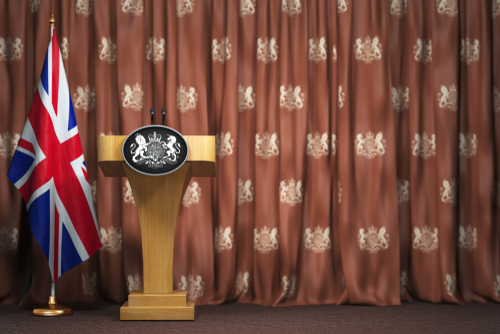

Summary
- As of this morning, 11 candidates have announced their intention to run to be the next UK prime minister, with Priti Patel deciding today.
- The Tory backbench 1922 Committee will elect its new executive today after market close, which will confirm the process for new leadership selection.
- New rules are reported to require MPs to need more Tory MPs to back each candidate than the eight previously – this would thin the field out.
- Expectations are for the voting process to begin Wednesday, and the final two candidates to be chosen by the start of Parliament’s summer recess on 21 July.
- We provide an update to the current candidates, with focus on their fiscal plans.
This article is only available to Macro Hive subscribers. Sign-up to receive world-class macro analysis with a daily curated newsletter, podcast, original content from award-winning researchers, cross market strategy, equity insights, trade ideas, crypto flow frameworks, academic paper summaries, explanation and analysis of market-moving events, community investor chat room, and more.
Summary
- As of this morning, 11 candidates have announced their intention to run to be the next UK prime minister, with Priti Patel deciding today.
- The Tory backbench 1922 Committee will elect its new executive today after market close, which will confirm the process for new leadership selection.
- New rules are reported to require MPs to need more Tory MPs to back each candidate than the eight previously – this would thin the field out.
- Expectations are for the voting process to begin Wednesday, and the final two candidates to be chosen by the start of Parliament’s summer recess on 21 July.
- We provide an update to the current candidates, with focus on their fiscal plans.
Who are the Current Candidates?
Thus far, eleven candidates have put their names forward for the leadership, while Brexiteer-favourite Priti Patel will decide today whether to compete. Several previous candidates, including Defence Secretary Ben Wallace, MP Michael Gove (backing Kemi Badenoch), and MP Steve Baker (backing Suella Braverman) have decided not to pursue the leadership. See here for our background to the race. Centre of attention is fiscal policy. We have broken down the main candidates, their current odds, and their positions on corporate tax, national insurance, fuel duties and Brexit (Table 1).

Contextualising Fiscal Policy
As it stands, ex-Chancellor Rishi Sunak is front-runner based on betting odds. Right now, he appears to be one of the least willing to cut taxes, having set a path as chancellor to increase tax burden to a record level.
From the comments set out by the other candidates, it is anticipated that if any of them were to win, the fiscal deficit would need to rise, with the scale of this rise dependent on the candidate in question. The most expansive policy set out thus far has been reported to be Sajid Javid’s at £39bn per year, excluding the cuts to fuel duty.
For context, the DMO assumption from March 2022 was for a deficit of £95bn, requiring c.£40bn net-gilt issuance. Meanwhile, every pp cut in corporation tax would cost around £2bn, every pp cut in fuel VAT would cost around £680mn, and every 1p reduction in fuel duty per litre would cost around £450mn (Table 2 and Chart 1).

Henry Occleston is a Strategist, who focuses on European markets. Formerly, he worked in European credit and rates strategy at Mizuho Bank, and market strategy at Lloyds Bank. He holds a BA in Economics from Durham University, and an MSc in Economics & Social History from the University of Oxford.
(The commentary contained in the above article does not constitute an offer or a solicitation, or a recommendation to implement or liquidate an investment or to carry out any other transaction. It should not be used as a basis for any investment decision or other decision. Any investment decision should be based on appropriate professional advice specific to your needs.)
